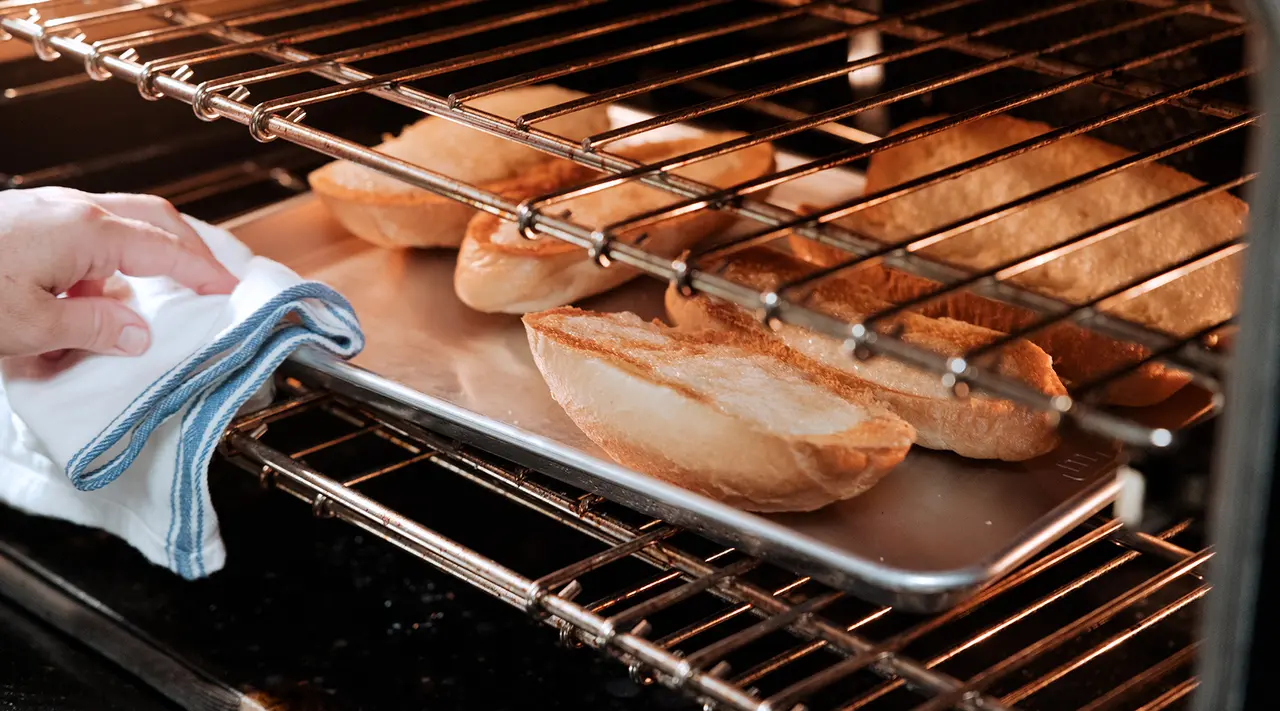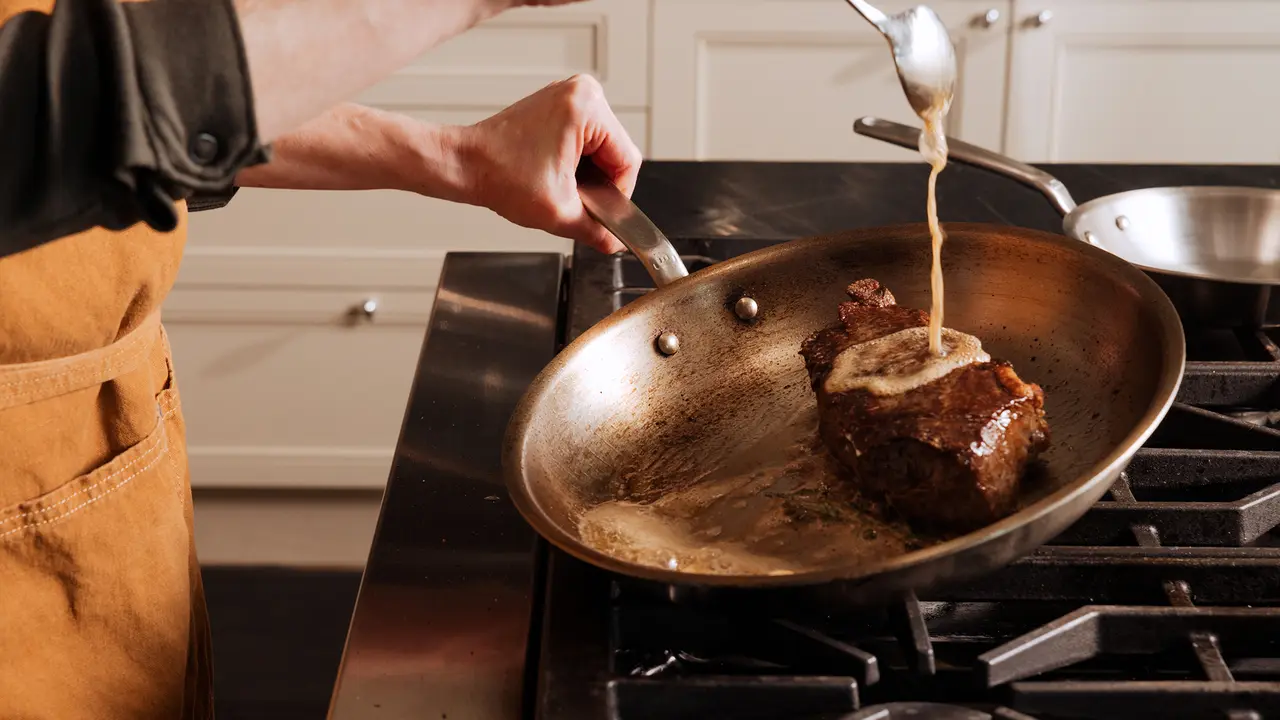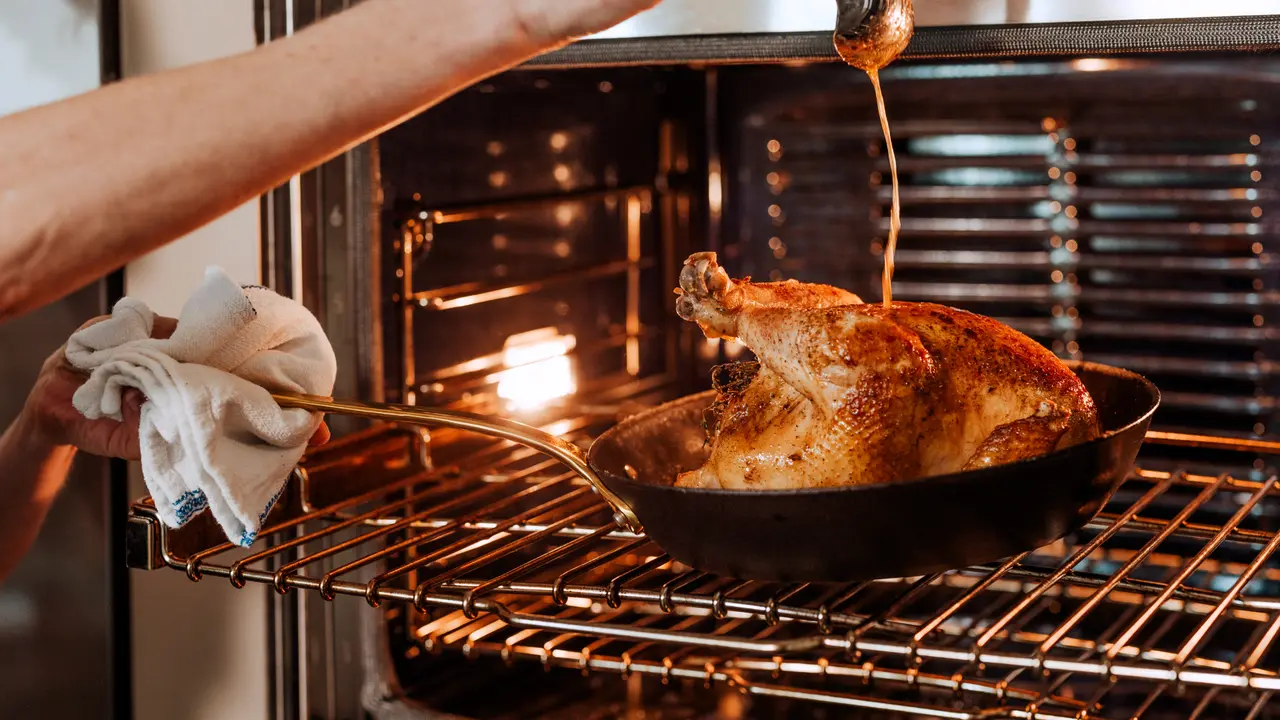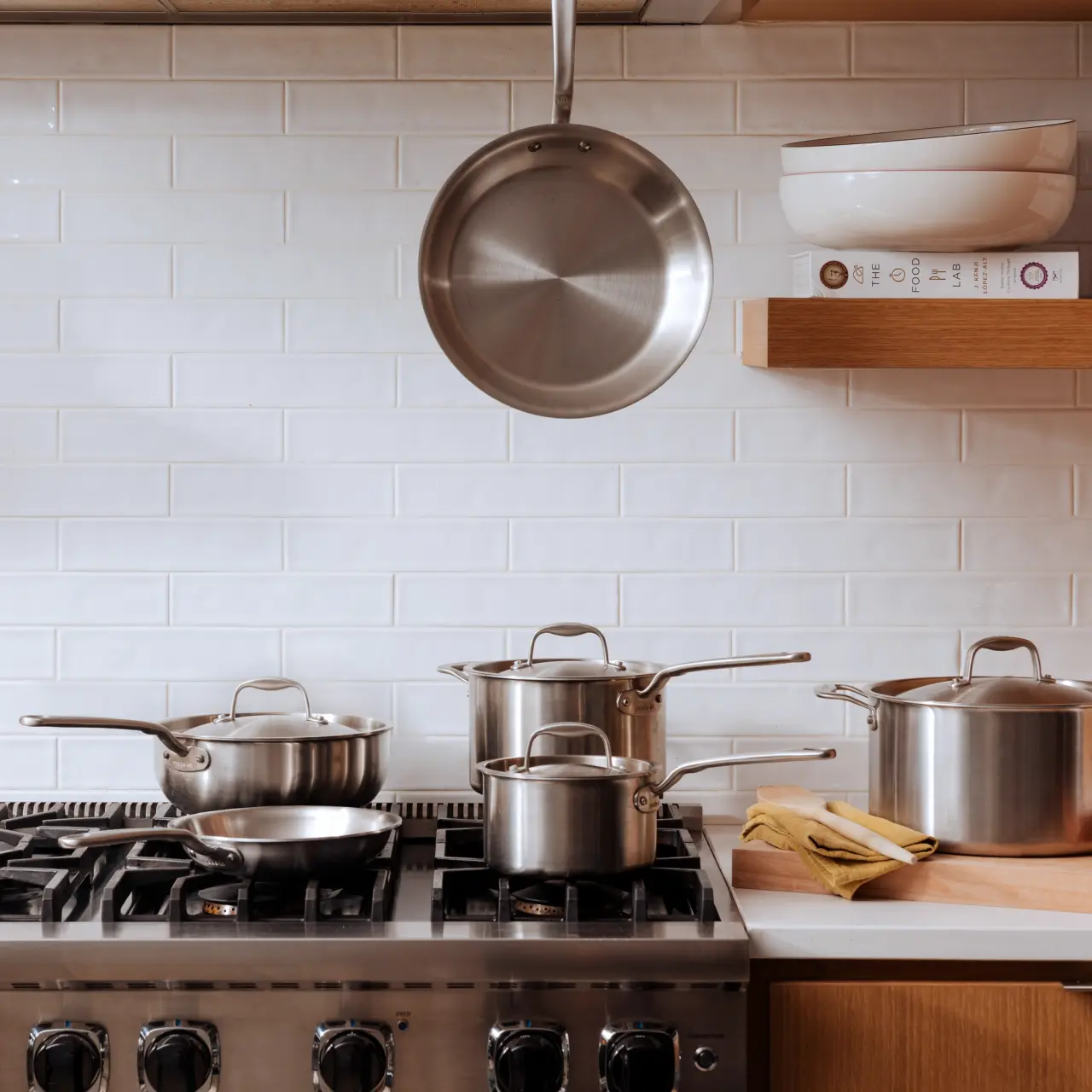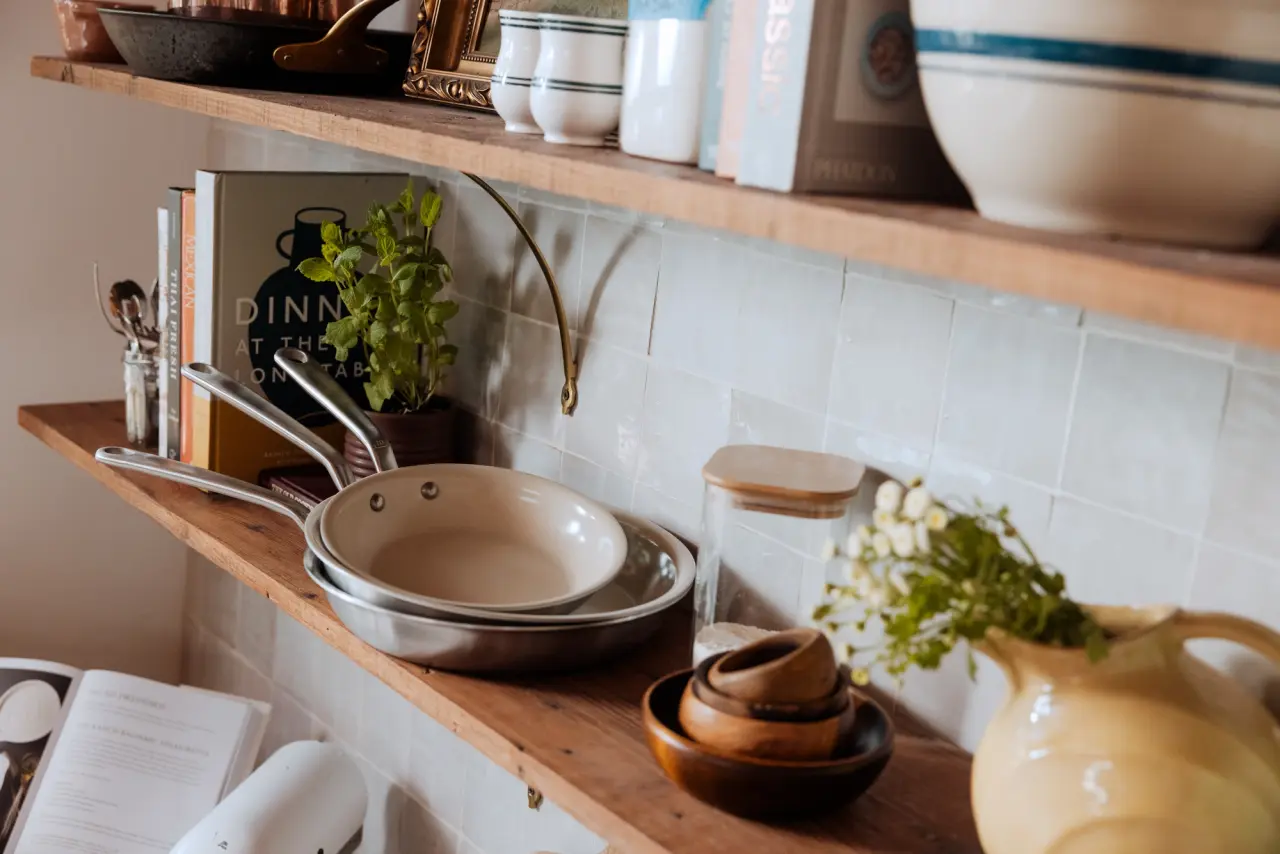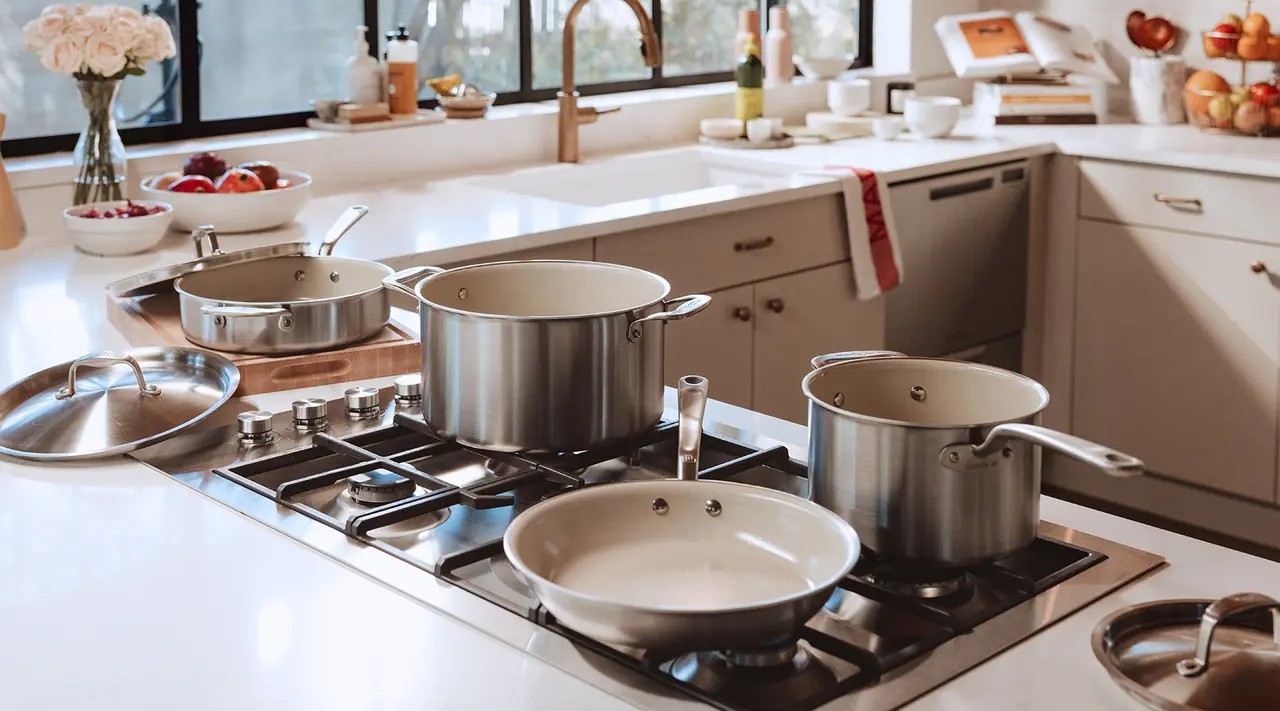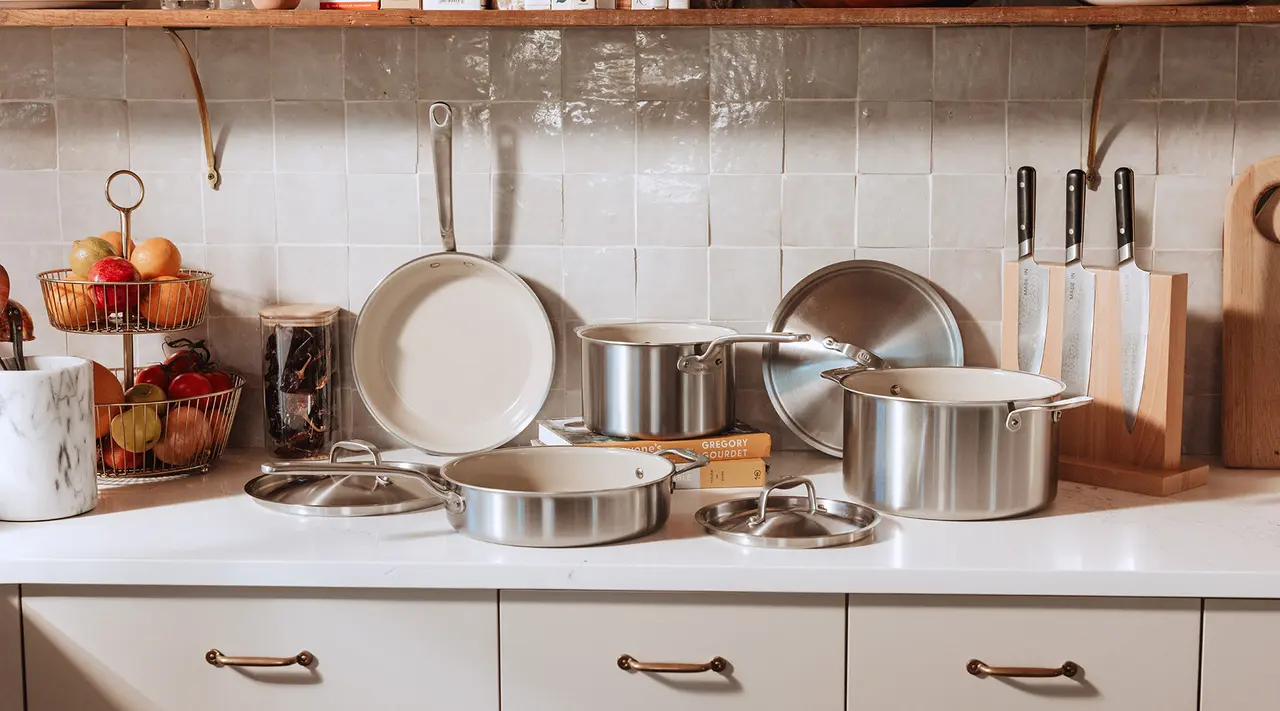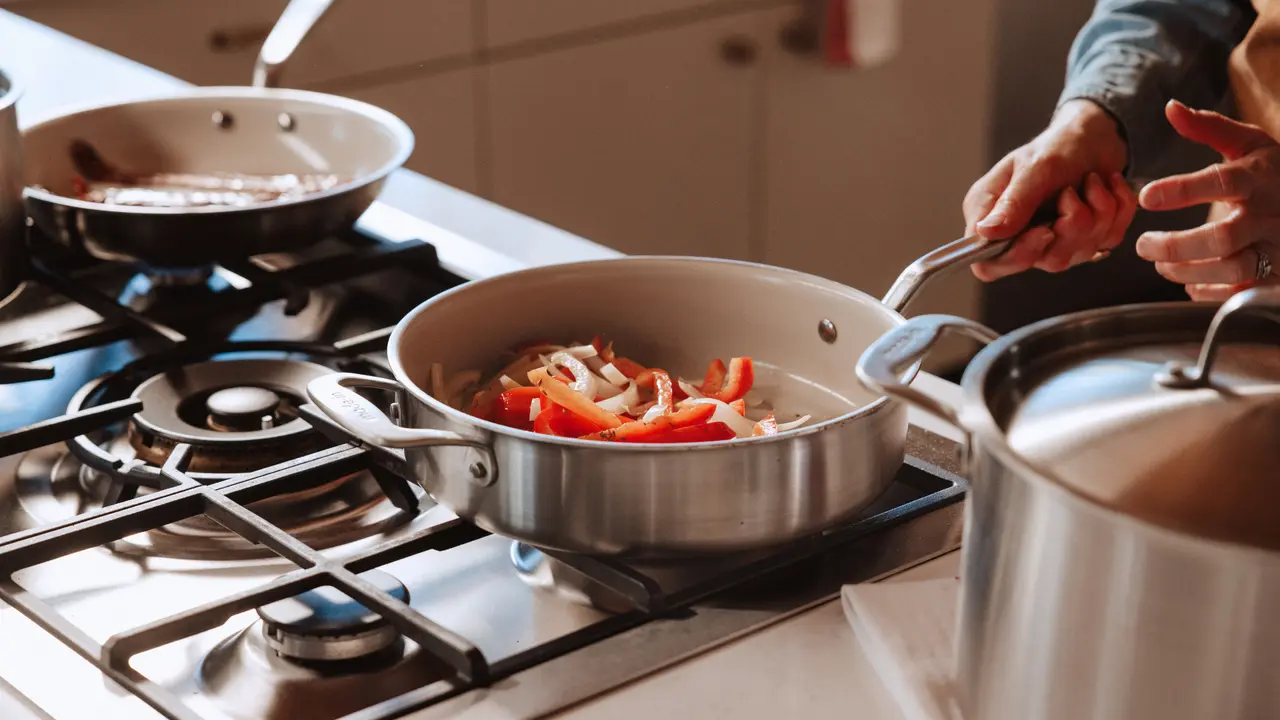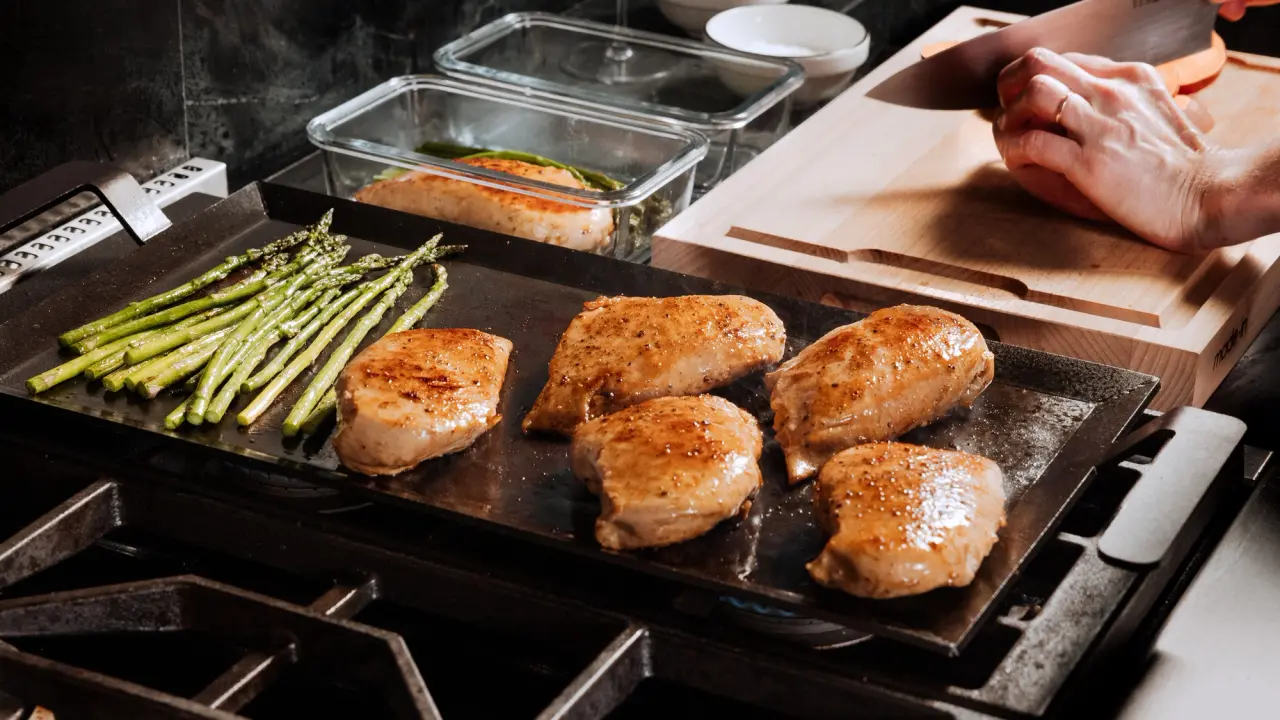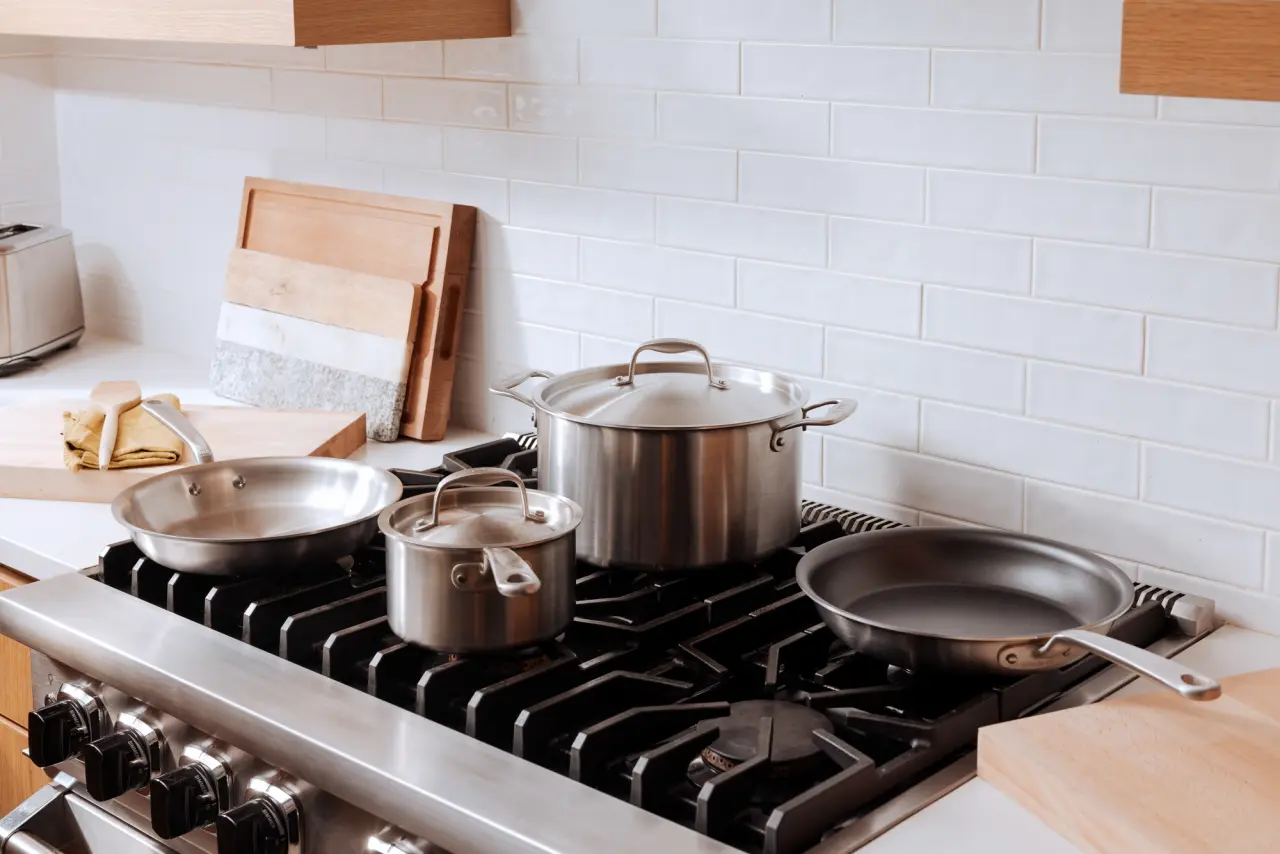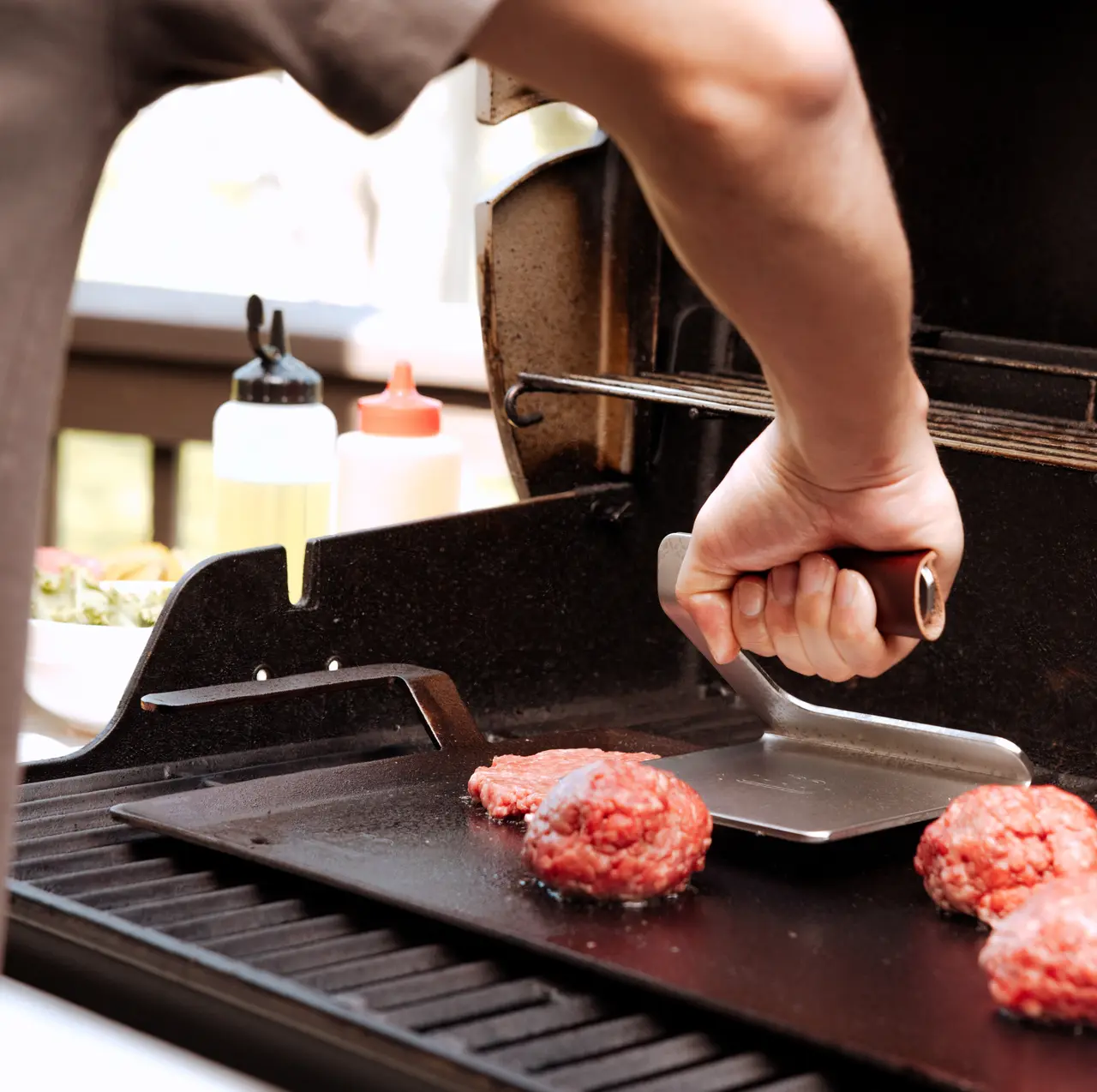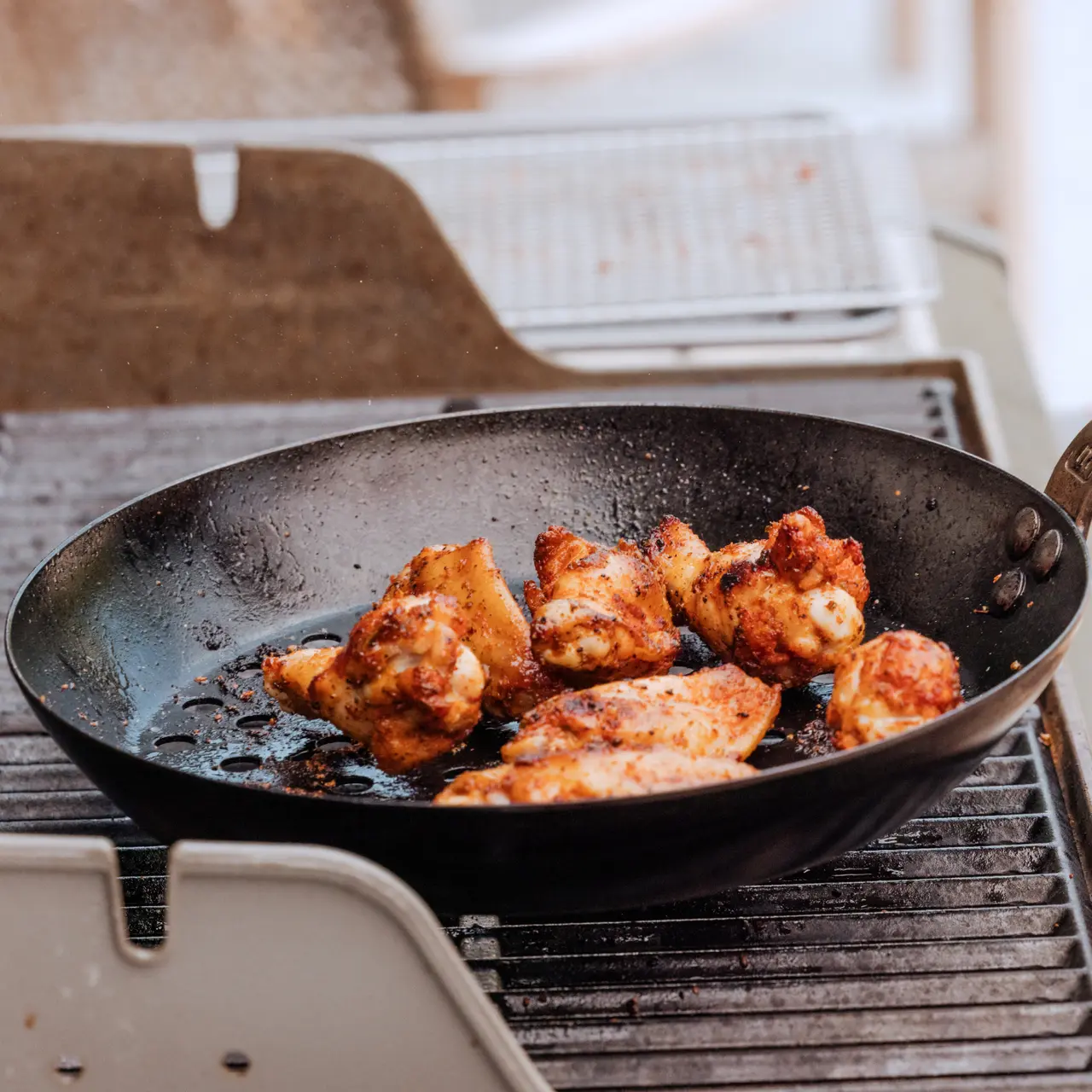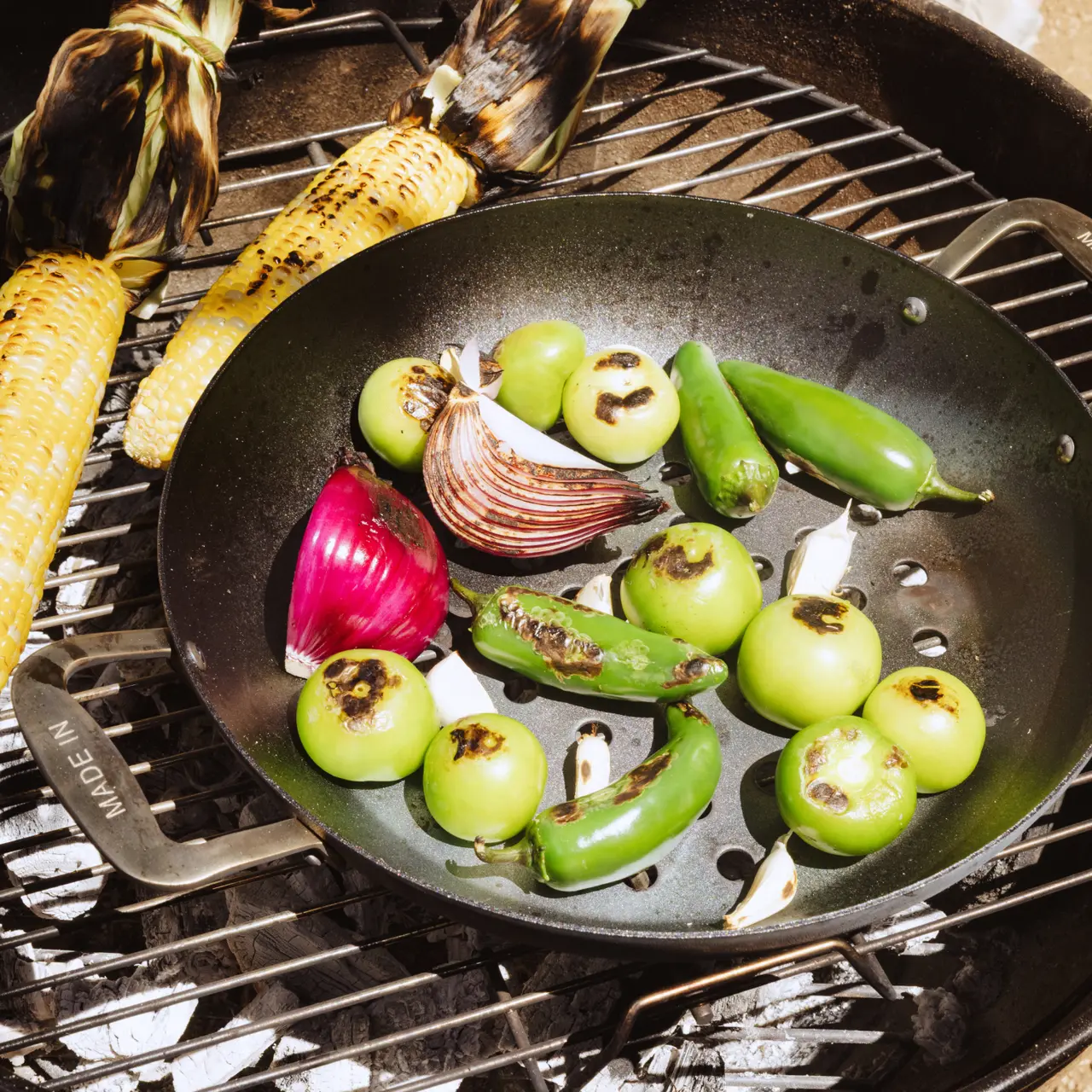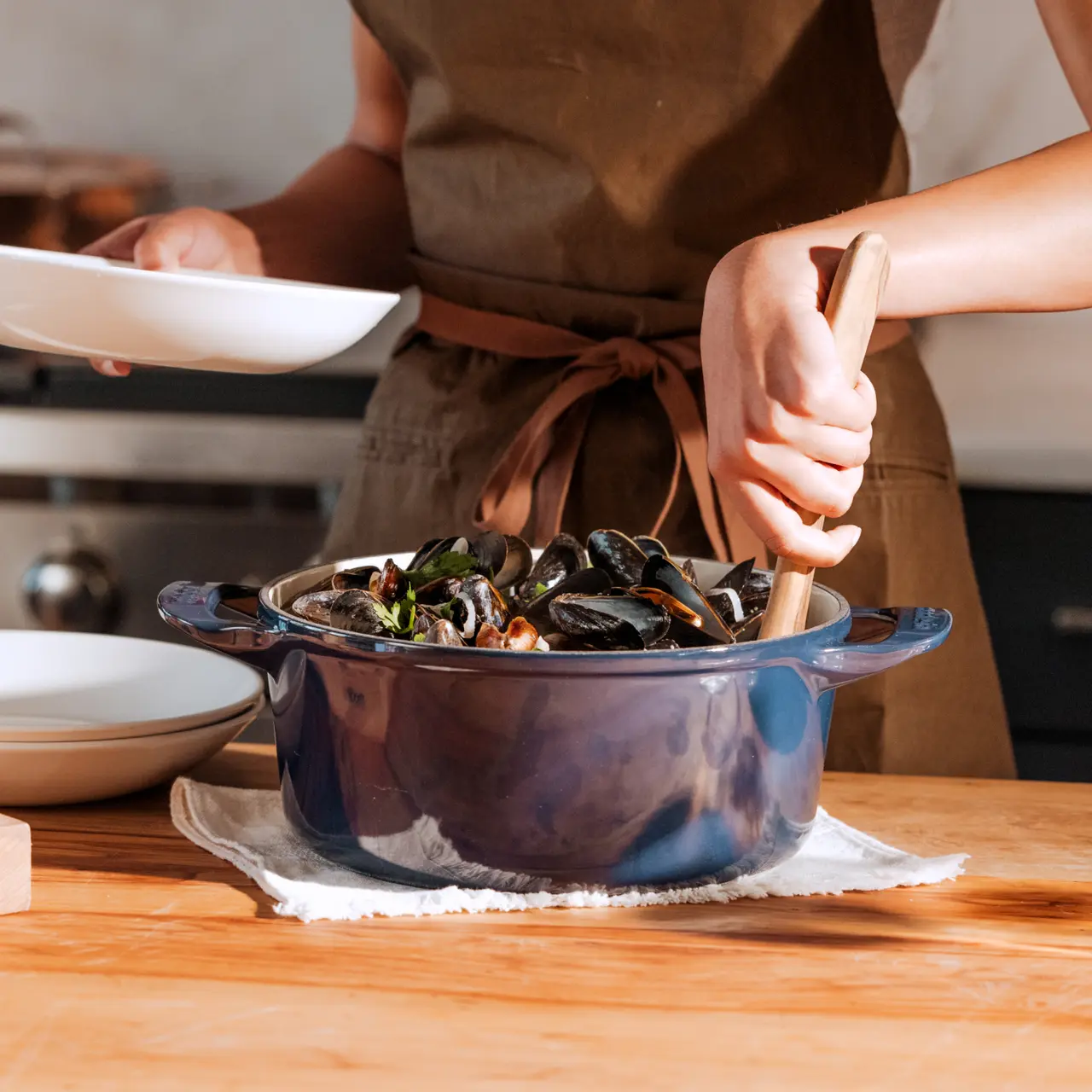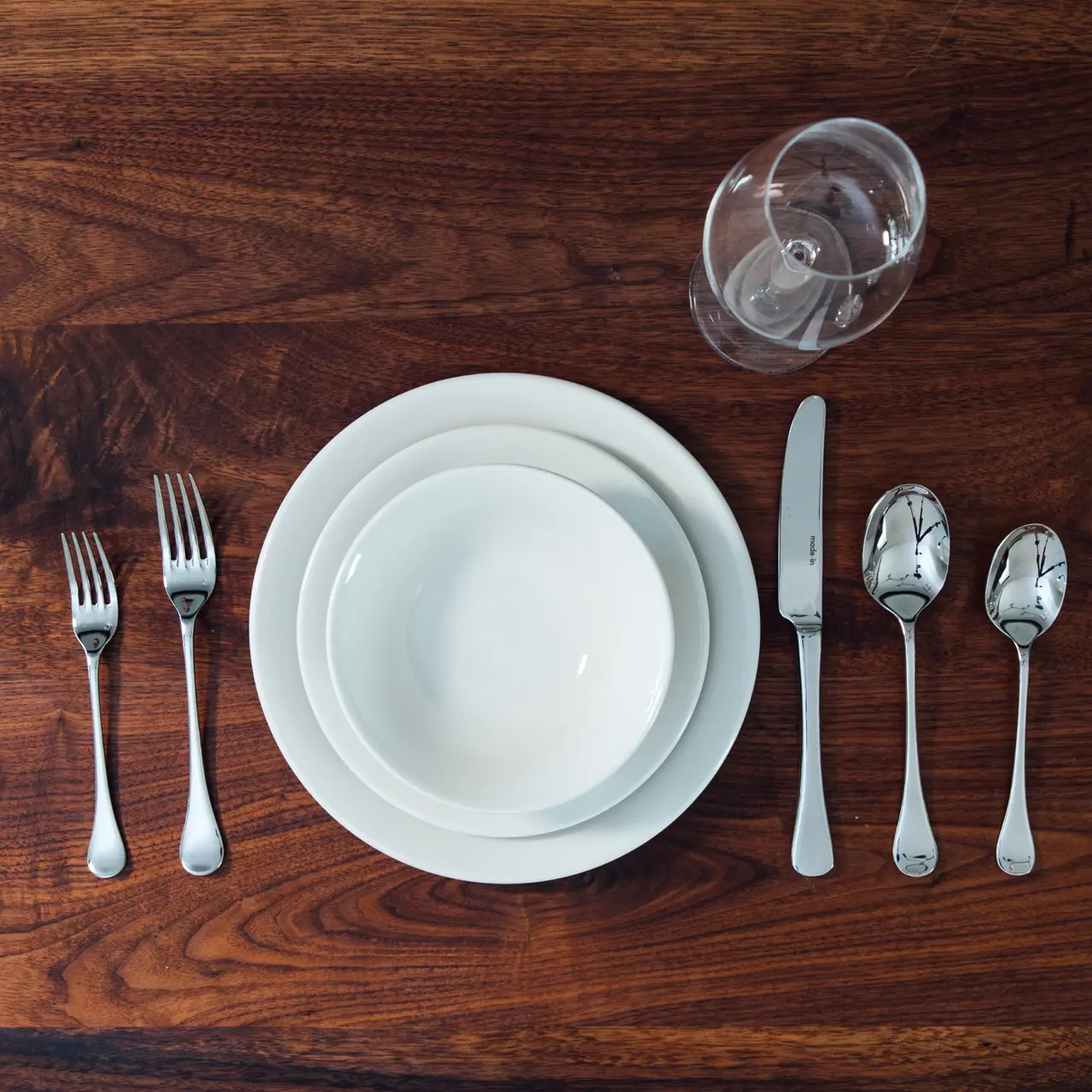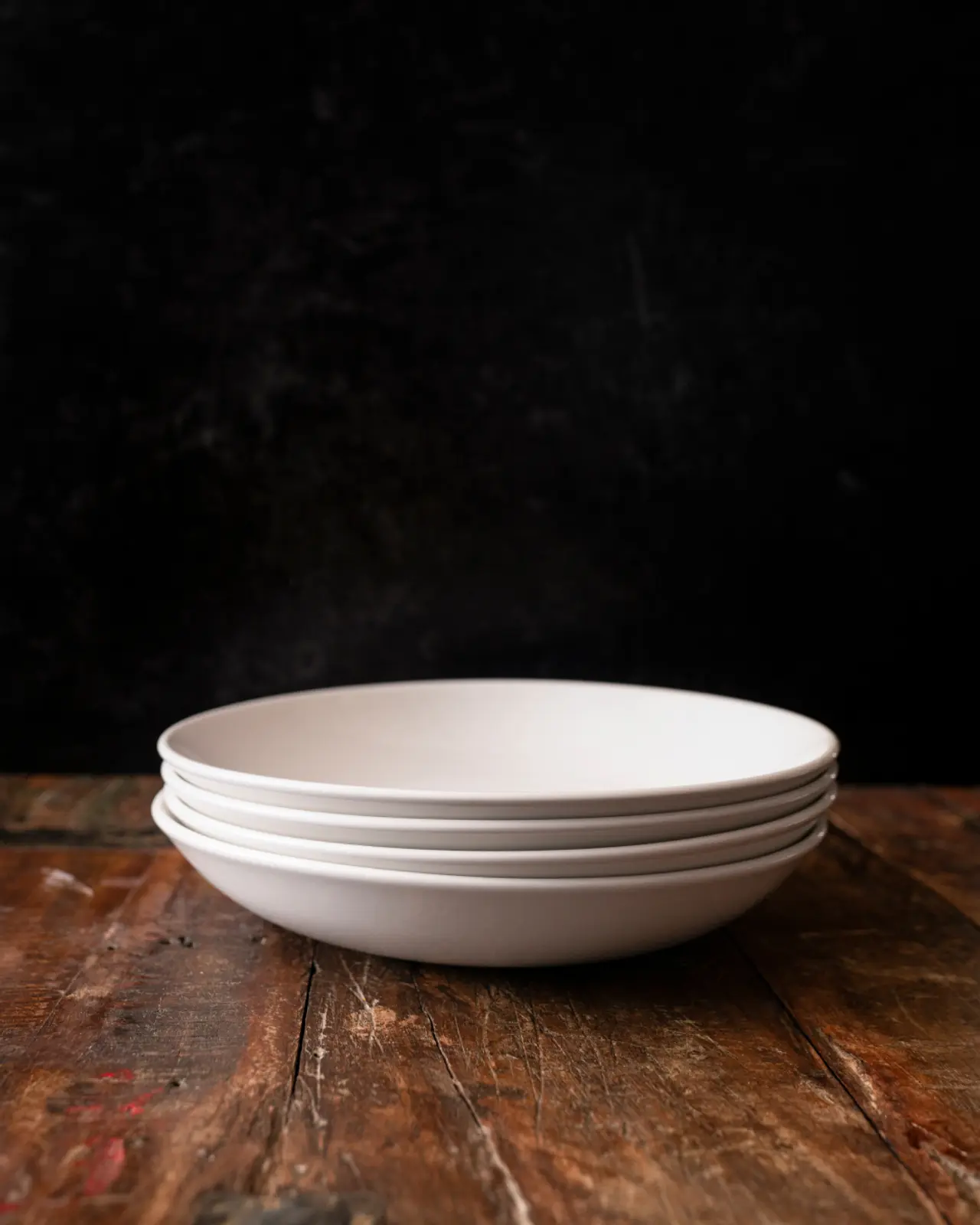When it comes to flat baking pans, there are so many different varieties that it can get very confusing very quickly. Sheet pans, baking sheets, cookie sheets... The list goes on!
To make matters even more perplexing, different recipes call for different flat baking pans and these pans aren’t always interchangeable due to design differences.
In this article, we’re going to focus on all things sheet pan, including what a sheet pan is, how it’s different from other flat baking pans, how to clean a sheet pan, and more.
What is a sheet pan?
A sheet pan is a rectangular baking pan with a flat, large surface area baking surface and a raised rim. It’s typically made of aluminum and commonly offered in three different sizes: full sheet pans, half sheet pans, and quarter sheet pans.
Sheet pans are popular in both restaurant kitchens and home ovens, and well made ones are heavy duty enough for daily use.
What is a sheet pan used for?
Sheet pans are one of the most versatile pans you can own. They’re just as great at roasting vegetables as they are at serving as an oven-to-table vessel for melting cheese on nachos. You can make perfectly crispy bacon on a cooling rack placed within a sheet pan or use one to crank the oven up to broil and get some texture on braised meat!
You can even cook an entire dinner on one — meat, starch, and vegetables! These are called “sheet pan dinners” and are incredibly popular with meal preppers and busy families. Turn your kitchen into a test kitchen and try a sheet pan dinner out!
How are sheet pans, baking sheets, jelly roll pans, and cookie sheets different?
The main difference comes down to the rim. Sheet pans and jelly roll pans have a tall rim that’s typically around an inch high. Baking sheets and cookie sheets typically have either no rim or one slightly raised grabbing edge.
Sheet pans and jelly roll pans both have rims because these pans are designed to prevent leaks and make thin sheet cakes, respectively. Baking sheets and cookie sheets are designed for even air flow on baked goods, which is why they do not have such a rim.
Furthermore, while baking and cookie sheet sizes can vary greatly, jelly roll pans are typically between the sizes of a quarter sheet pan and a half sheet pan.
For an in-depth breakdown of the differences between different flat baking pans, check out Epicurious’ baking pan comparison.
Made In's USA-manufactured Sheet Pan
What is a half sheet pan and how big is it?
A half sheet pan is, easily enough, half the size of a full sheet pan! If you were to take a full sheet pan, cut it in half lengthwise, and then turn one of the halves sideways, you’d have a half sheet pan (with one rimless side, of course). Half sheet pans typically measure in at about 18 inches by 13 inches, with a height of around 1 inch.
Half sheet pans are used just like full sheet pans but by those with smaller ovens or for smaller tasks, such as roasting a smaller batch of vegetables or broiling 2-3 salmon fillets.
How to clean sheet pans
Depending on the design of the sheet pan, it can either be easy to clean or somewhat difficult to clean regardless of whether you’re using parchment paper or aluminum foil. If your sheet pan has rolled edges but these edges are not filled in after the rolling process, your sheet pan will be prone to collecting debris that can build up and burn on over time. If these edges are filled in, your sheet pan will be much easier to keep clean.
Many sheet pans are dishwasher safe, but your best bet is always to handwash your sheet pan with warm, soapy water. This will ensure a thorough cleaning and that your sheet pan doesn’t get bent.
